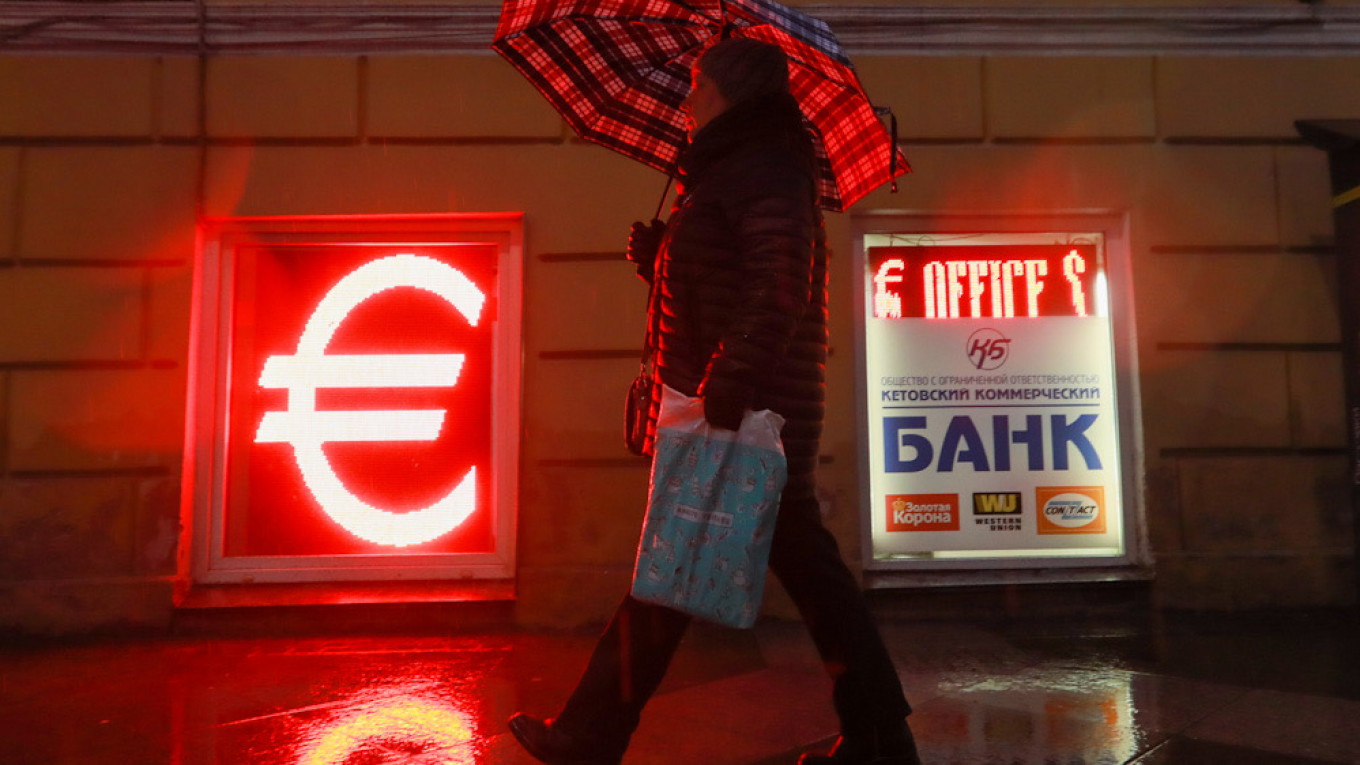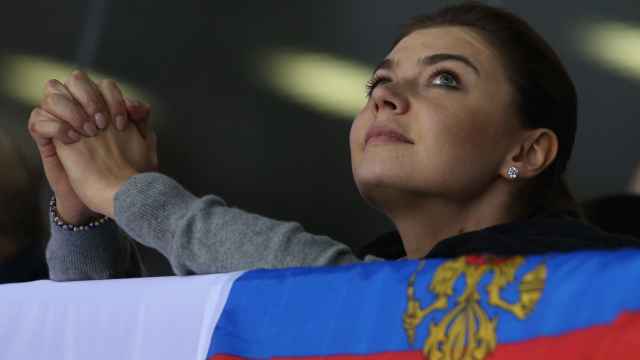Russia has raised 1.5 billion euros ($1.8 billion) in its first international debt placement since the U.S. banned American banks from buying Russian government debt in its latest escalation of sanctions against Moscow.
Foreigners accounted for some 47% of the so-called Eurobonds — government debt coupons denominated in euros — which were sold by the Finance Ministry on Thursday. Despite the embargo on U.S. financial institutions buying Russian government debt, banks in Europe made up a significant portion of the order book.
The placement comes amid a moment of stability in U.S.-Russia relations following the first meeting of the countries’ top diplomats — U.S. Secretary of State Antony Blinken and Russian Foreign Minister Sergei Lavrov — earlier this week, and Joe Biden’s decision not to sanction the company constructing the controversial Nord Stream 2 pipeline.
Biden last month placed his first set of sanctions against Moscow for a host of infringements, including election interference, cyber attacks and Russia’s annexation of Crimea, banning American banks from buying Russian government debt directly, but allowing them to continue holding and trading Russian bonds on the secondary market.
Russia sold two tranches of Eurobonds on Thursday, securing an effective borrowing rate of 2.65% a year on one billion euros ($1.2 billion) of 15-year bonds, and 1.37% on another 500 million euros ($600 million) of debt set to mature in six years.
Foreign banks were in the majority for the longer-term bonds, buying up 53% of those on offer — an encouraging sign for Russia’s Finance Ministry, which had previously said it was waiting for the most opportune moment to enter the Eurobond market for the first time since last November.
The borrowing rates were at a slight premium — 0.3 percentage points — to what might be considered a fair value given conditions on global markets, according to Dmitry Dorofeev, portfolio manager of Alfa Capital, cited by The Bell business site. Though he added this is unlikely to faze the Finance Ministry, which is keen to demonstrate to the markets that there are still plenty of banks and investors willing to invest in Russian debt both at home and abroad
But other analysts said the impact of the latest U.S. sanctions was visible. BlueBay Asset Management’s Timothy Ash said he expects Russia would have liked to have sold as much as $3 billion in the bond auction — its full annual target — to avoid having to run a second issue later in the year.
“People are worried about being stuck with bonds if the U.S. extends sanctions into secondary trading,” he said, adding that other emerging market countries such as Saudi Arabia, Qatar and Abu Dhabi have recently secured “much bigger deals … and at a much higher coverage ratio — two to three-times typically.”
Comparatively, Russia received orders of around two billion euros, giving a coverage ratio of just 1.3.
Coverage ratio refers to the volume of potential orders placed in a bond auction compared to the amount of bonds on sale. Investors place bids for the rate of return they want to receive, meaning auctions are almost always oversubscribed as investors can place speculative bids at much higher interest rates than they expect to be accepted. The seller then chooses which offers it wants to accept. A higher coverage ratio therefore indicates stronger demand and typically allows the seller to get better financing terms.
A Message from The Moscow Times:
Dear readers,
We are facing unprecedented challenges. Russia's Prosecutor General's Office has designated The Moscow Times as an "undesirable" organization, criminalizing our work and putting our staff at risk of prosecution. This follows our earlier unjust labeling as a "foreign agent."
These actions are direct attempts to silence independent journalism in Russia. The authorities claim our work "discredits the decisions of the Russian leadership." We see things differently: we strive to provide accurate, unbiased reporting on Russia.
We, the journalists of The Moscow Times, refuse to be silenced. But to continue our work, we need your help.
Your support, no matter how small, makes a world of difference. If you can, please support us monthly starting from just $2. It's quick to set up, and every contribution makes a significant impact.
By supporting The Moscow Times, you're defending open, independent journalism in the face of repression. Thank you for standing with us.
Remind me later.






